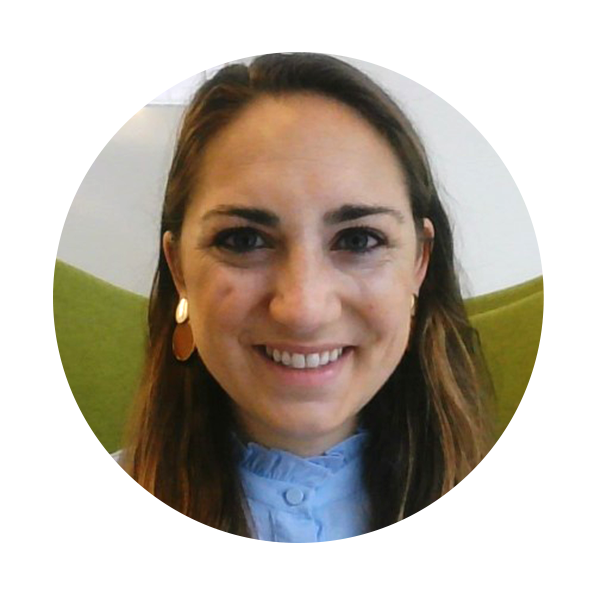Delivering Real Results
The Talent of Tomorrow fellowship benefits everyone it touches: the fellows, the employers, and the students in CTE programs. Here’s how.
Real world experience. As part of their coursework, ToT fellows evaluate CTE programs near their companies’ offices and come up with strategies for recruiting talent from those programs. That’s valuable experience that can pay off on the job in many ways.
“I appreciated the tangible examples of companies taking a proof of concept and moving it to scale,” says ToT Fellow Natalie Van Kleef, global head of future workforce for Google Cloud. “I learned a lot and found myself taking notes on the content and ideas. How this can translate to the work I want to accomplish was definitely at the top of my mind.”
Lifelong connections. Participants work collaboratively with instructors, coaches, and the other fellows. That helps them expand their networks and build professional social capital that will benefit them throughout their careers.
“The fellowship experience marked the first time I was able to really collaborate with my peers in the industry toward a shared goal, and now I’ve met lifelong mentors and friends,” says Lucia.
“Having access to the networks of people who are living this mission and doing this work was very inspiring, and it really elevated everyone’s knowledge,” says Van Kleef.
Local partners, local solutions: Community colleges are attractive partners for employers because they know their communities. They’ve forged longstanding relationships with workforce development organizations and industry and professional associations, and they can harness the power of those connections as they work with employers to design programs in which students acquire the skills that are at a premium in the regional economy.
Lucia says the fellowship gave her a more complete picture of the valuable role community colleges play in developing talent.
“My favorite part of the fellowship was the learning modules and getting access to the community college coaches and mentors. It has completely changed my understanding of how complex the postsecondary base can be. I’ve always been a huge advocate of community colleges, but after the fellowship I developed an even greater respect for [community colleges],” she says. ‘It honestly just energized me.”
New hiring strategies, new career opportunities: By fostering connections between CTE programs and businesses, ToT leads employers to expand their recruiting efforts to include both two- and four-year degree institutions, and that creates new career pathways for CTE students, who might have been bypassed by traditional corporate recruiting programs.
“We are building new—and more inclusive—talent pipelines to meet our needs,” Todd Cohen, senior manager of strategic workforce initiatives at Lockheed Martin, wrote in a Talent Management column about the value of investing in an inclusive workforce.




